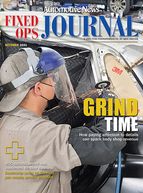Woven Planet's mission might not be easy to grasp, but the idea behind it is relatively simple. Kuffner and Toyoda are betting on a future when the biggest leaps in automotive technology come not from mechanical advancements, but as lines of code.
That approach is embodied in Arene, an automotive platform being developed by Kuffner and his team. Like operating systems for iPhones or personal computers, Arene is designed to work as software within cars but also connected to a bigger cloud network.
While Tesla Inc. and others are deploying new features over the air to vehicles to improve battery performance or autonomous systems, Arene aims to go beyond that. The ultimate goal is to have cars gather and share massive amounts of data, which in turn can be used to improve performance, an approach Kuffner pioneered in the field of robotics. Arene will also be offered to rival automakers.
"We're really trying to create the world's best programming mobility ecosystem," he said. "Woven Planet's ambition is really beyond Toyota."
To achieve that goal, Kuffner and his team have been developing the Arene platform even before there are any vehicles to run it. This "software-first" approach is what Kuffner sees as the future of automobile design and assembly — designing the mechanics of a vehicle around its underlying software, as opposed to writing code for a largely finished product.
This represents a fundamental departure from the way Toyota has built cars for almost a century. The company practically invented modern automotive manufacturing through concepts such as "kaizen," or continuous improvement, and just-in-time assembly.
There's no shortage of new entrants betting that the industry's seismic shift will create new opportunities. Not only are Tesla and Google parent Alphabet Inc. intent on popularizing electric, autonomous vehicles, Apple also is working in secret to claim a slice of the $5 trillion global auto market.
It's going to be a bumpy ride. Volkswagen AG's bug-ridden release of its flagship ID3 EV last year underscored the fact that, even for Toyota's biggest rival, decades of manufacturing experience doesn't always translate into a competitive advantage.
"You need to strengthen your software push quickly; the value of your product is changing," Lei Zhou, a partner at Deloitte Tohmatsu Consulting, said of legacy automakers. Recruiting top talent from Silicon Valley is one way they're seeking to adapt, he said, seen most recently when Ford Motor Co. hired away the head of Apple's car project.






